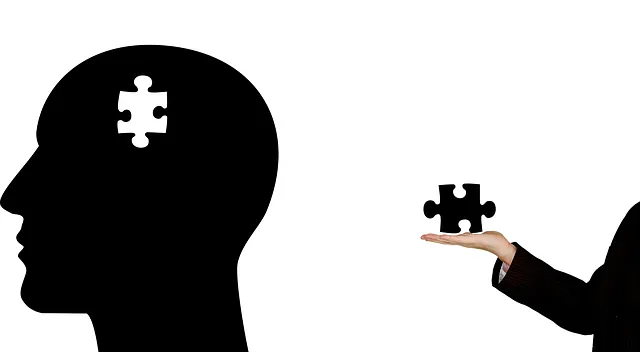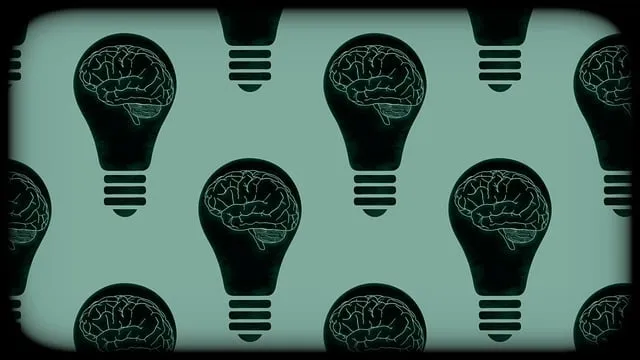The Kaiser Permanente mental health center in Wheat Ridge prioritizes early detection of depression through recognizing key symptoms and encourages proactive measures like self-care, therapy, and support groups. They advocate for a holistic approach to well-being, emphasizing nutrition, exercise, sleep, and stress management. Building strong social connections and employing evidence-based practices like Cognitive Behavioral Therapy (CBT) are key strategies. The center offers personalized guidance, diverse programs, and resources to empower individuals in preventing and managing depression effectively.
Depression prevention isn’t just about managing symptoms; it’s about fostering resilience and cultivating a healthy mind. This comprehensive guide, informed by insights from the Kaiser Permanente mental health center in Wheat Ridge, explores a multi-faceted approach to depression prevention. We delve into recognizing early signs, understanding the power of lifestyle adjustments like diet, exercise, and sleep, and building supportive networks. Additionally, we highlight Cognitive Behavioral Therapy (CBT) as a proven strategy, emphasizing its effectiveness within the context of the Kaiser Permanente Wheat Ridge center. Learn how to access resources and seek help when needed to navigate this journey towards mental well-being.
- Understanding Depression: Recognizing the Signs and Symptoms (Focus on early detection and awareness from the Kaiser Permanente mental health center Wheat Ridge)
- Lifestyle Changes for Better Mental Health (Emphasize diet, exercise, sleep, and stress management techniques based on recommendations from the center)
- Building a Supportive Network: The Power of Connection (Discuss the importance of social connections, community involvement, and professional support systems as preventive measures)
- Cognitive Behavioral Therapy (CBT): A Proven Treatment Approach (Explain CBT techniques, their effectiveness in prevention, and how the Kaiser Permanente center integrates them)
- Accessing Resources: Seeking Help When Needed (Guide readers on identifying when professional help is required and outlining available resources from the Wheat Ridge mental health center)
Understanding Depression: Recognizing the Signs and Symptoms (Focus on early detection and awareness from the Kaiser Permanente mental health center Wheat Ridge)

Depression is a serious mental health condition that can significantly impact an individual’s daily life and overall well-being. Early detection and awareness are key to preventing and managing it. The Kaiser Permanente mental health center Wheat Ridge emphasizes the importance of recognizing the signs and symptoms to foster timely intervention and support.
The center highlights various indicators, such as persistent feelings of sadness, loss of interest in activities once enjoyed, changes in appetite or sleep patterns, fatigue, difficulty concentrating, and recurrent thoughts of death or suicide. By educating individuals about these signs, Kaiser Permanente encourages proactive measures. This can include adopting Self-Care Practices, engaging in Resilience Building through therapy or support groups, and exploring Mental Wellness Coaching Programs Development to foster a healthier mindsets and coping mechanisms.
Lifestyle Changes for Better Mental Health (Emphasize diet, exercise, sleep, and stress management techniques based on recommendations from the center)

Making lifestyle changes can significantly impact your mental health, and the Kaiser Permanente mental health center in Wheat Ridge recommends a holistic approach to well-being. A balanced diet, rich in fruits, vegetables, and whole grains, is essential for maintaining good mental health, as proper nutrition supports brain function and mood regulation. Regular exercise, such as walking, yoga, or even dancing, releases endorphins that can boost your mood and reduce symptoms of depression. Adequate sleep, typically 7-9 hours per night, is crucial for emotional resilience; it allows the brain to process emotions and consolidate memories. Additionally, stress management techniques like mindfulness meditation, deep breathing exercises, or yoga can help healthcare providers prevent burnout and promote mental clarity. Incorporating these practices into your daily routine can be a powerful tool in maintaining and improving mental health, as emphasized by the Kaiser Permanente mental health center’s expertise.
Building a Supportive Network: The Power of Connection (Discuss the importance of social connections, community involvement, and professional support systems as preventive measures)

Building a strong support network is an essential aspect of depression prevention. Social connections play a pivotal role in maintaining mental wellness. Strong relationships with family, friends, and peers can provide a sense of belonging and offer valuable emotional support when facing challenging times. The warmth and understanding derived from these connections act as a buffer against the onset of depression. Community involvement, whether through local clubs, volunteer groups, or social events, expands one’s network, fostering a sense of purpose and connection to something greater than oneself. This collective atmosphere can help combat feelings of isolation that often contribute to depressive episodes.
For those seeking additional support, professional guidance from mental health experts is invaluable. The Kaiser Permanente mental health center in Wheat Ridge offers various services designed to promote mental wellness, including therapy sessions and Depression Prevention programs. These initiatives focus on developing effective communication strategies, which are crucial for expressing emotions and building meaningful relationships. Through counseling and coaching, individuals can learn coping mechanisms tailored to their unique needs, empowering them to navigate life’s challenges with resilience and a sense of community support.
Cognitive Behavioral Therapy (CBT): A Proven Treatment Approach (Explain CBT techniques, their effectiveness in prevention, and how the Kaiser Permanente center integrates them)

Cognitive Behavioral Therapy (CBT) is a highly effective approach to depression prevention that has gained significant recognition in mental health treatment. This evidence-based therapy focuses on identifying and changing negative thought patterns and behaviors, offering individuals practical tools to manage their mood and emotions. By challenging distorted thinking and promoting healthier ways of coping, CBT empowers people to take charge of their mental well-being.
The Kaiser Permanente mental health center in Wheat Ridge integrates CBT techniques into its comprehensive prevention strategies. They offer individual therapy sessions where trained professionals guide patients through a structured process, helping them recognize triggers and develop personalized coping mechanisms. This tailored approach not only addresses current symptoms but also equips individuals with long-term skills to navigate life’s challenges, thus reducing the risk of future depressive episodes. The center’s commitment to evidence-based practices ensures that patients receive an effective and supportive environment for their mental health journey.
Accessing Resources: Seeking Help When Needed (Guide readers on identifying when professional help is required and outlining available resources from the Wheat Ridge mental health center)

When it comes to depression prevention, identifying signs early on is crucial. If you or someone close to you experiences persistent feelings of sadness, hopelessness, or a lack of interest in activities that were once enjoyed, it may be time to seek professional help. The Kaiser Permanente mental health center in Wheat Ridge offers comprehensive resources for those navigating mental wellness challenges. Their skilled professionals are equipped to provide exercise guidance tailored to individual needs, promoting self-care and resilience.
The Wheat Ridge location also hosts a diverse range of programs, including community outreach initiatives that foster support networks. Additionally, the Mental Health Policy Analysis and Advocacy team works tirelessly to ensure accessible services and advocate for mental wellness on a broader scale. Through these resources, individuals can take proactive steps towards managing their mental health effectively. Journaling, for instance, can be an excellent tool for self-reflection and tracking moods, while community programs provide opportunities for connection and shared experiences.
Depression prevention is a multifaceted approach, and by integrating strategies from the Kaiser Permanente mental health center Wheat Ridge, individuals can take proactive steps towards well-being. From early recognition of signs and symptoms to adopting healthy lifestyle changes, building strong support networks, and exploring evidence-based treatments like CBT, there are effective tools available. Remember, seeking help is a sign of strength, and with the right resources, such as those offered by the Wheat Ridge center, prevention can be a powerful tool against depression.






